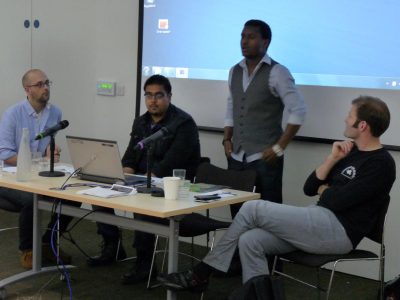military in schools/colleges
Education & the Military: A human rights & peace perspective
19/11/2014Quaker United Nations Office (QUNO)
Quaker United Nations Office (QUNO)
In this publication, QUNO questions the presence and influence of the military in primary and secondary education from a peace and human rights perspective. Concerned at the military’s involvement in schools and the militarisation of education, QUNO draws attention to relevant international human rights standards that promote education for peace.
Military Recruitment, Work & Culture in the South Wales Valleys
19/11/2014Wales Institute of Social & Economic Research, Data & Methods
Wales Institute of Social & Economic Research, Data & Methods
This article explores how social and cultural life in the south Wales valleys, an area of economic deprivation within Britain, has been shaped by the British military and militarism, in ways that are both specific to the area and shared with other regions throughout the country.
Troops to Teachers scheme extended
19/11/2014Times Education Supplement; UK Government; Academies Week
Times Education Supplement; UK Government; Academies Week
The Troops to Teachers scheme is being extended until the end of the 2016-2017 academic year, despite the fact that only 41 veterans started in the first cohort in January 2014, and only 54 in the second cohort in September 2014. The move has been criticised by the Association of Teachers and Lecturers...
How should we teach remembrance at school?
11/11/2014The Conversation
Can war ever be celebrated, or is it essentially futile? Do remembrance rituals, symbols and ceremonies do more to romanticise warfare than bring home its horror? Does the event of remembrance exclude the sacrifice of those who died on the opposing side? Disagreement abounds on these issues and we are unlikely to see a public consensus any time soon. We should also think carefully about the part our schools play in these public events.
How ought war to be remembered in schools
November 2014

David Aldridge examines the reasons usually advanced for involving children and young people in commemorating the war dead, and finds many of them wanting. He critically examines the high profile in schools of charities, like the Royal British Legion, with vested interests in certain kinds of commemoration. And he argues forcefully for a justification of remembrance in schools that requires a major rethink of established rituals and practices.
More military days in schools
This year over 550 schools around the country have had a Red, White and Blue Day on 11th October, which involves pupils raising money for three military charities by wearing red, white and blue clothing (the colours of the Union flag), or holding another fundraising event.
Military activity in UK schools
The encroachment of the UK military and ‘military ethos’ on the UK education system means that alternatives to war and peaceful ways of resolving conflict will be more difficult for young people to explore. This article was originally published on Information for Social Change.
Militarising Communities: The Armed Forces Community Covenant
Vron Ware reports on how the Armed Forced Community Covenant is a crucial part of the creeping militarisation of UK society. This article was originally published in Red Pepper.
Engage: the Military and Young People
June 2014

A short film made by Headliners and ForcesWatch, 2014
Why does the military have a 'youth engagement' policy and why is the government promoting 'military ethos' within education? What is the impact of military activities taking place in schools? ForcesWatch have been working with the charity Headliners and a group of young people in London to produce this short film which explores these questions and gives teenagers the opportunity to voice their reaction to the military’s interest in their lives.
Launch of new film on the military and young people

On Thursday 26 June 2014, we launched our new short documentary film 'Engage: the military and young people', at Friends House in London. A packed and diverse audience watched the film, which was very well-received. Speakers included Ben Griffin, founder of Veterans for Peace UK, Sam Hepworth from Headliners (the youth journalists charity who made the film) and some of the young filmmakers, and Owen Everett, Education Campaign worker at ForcesWatch.
